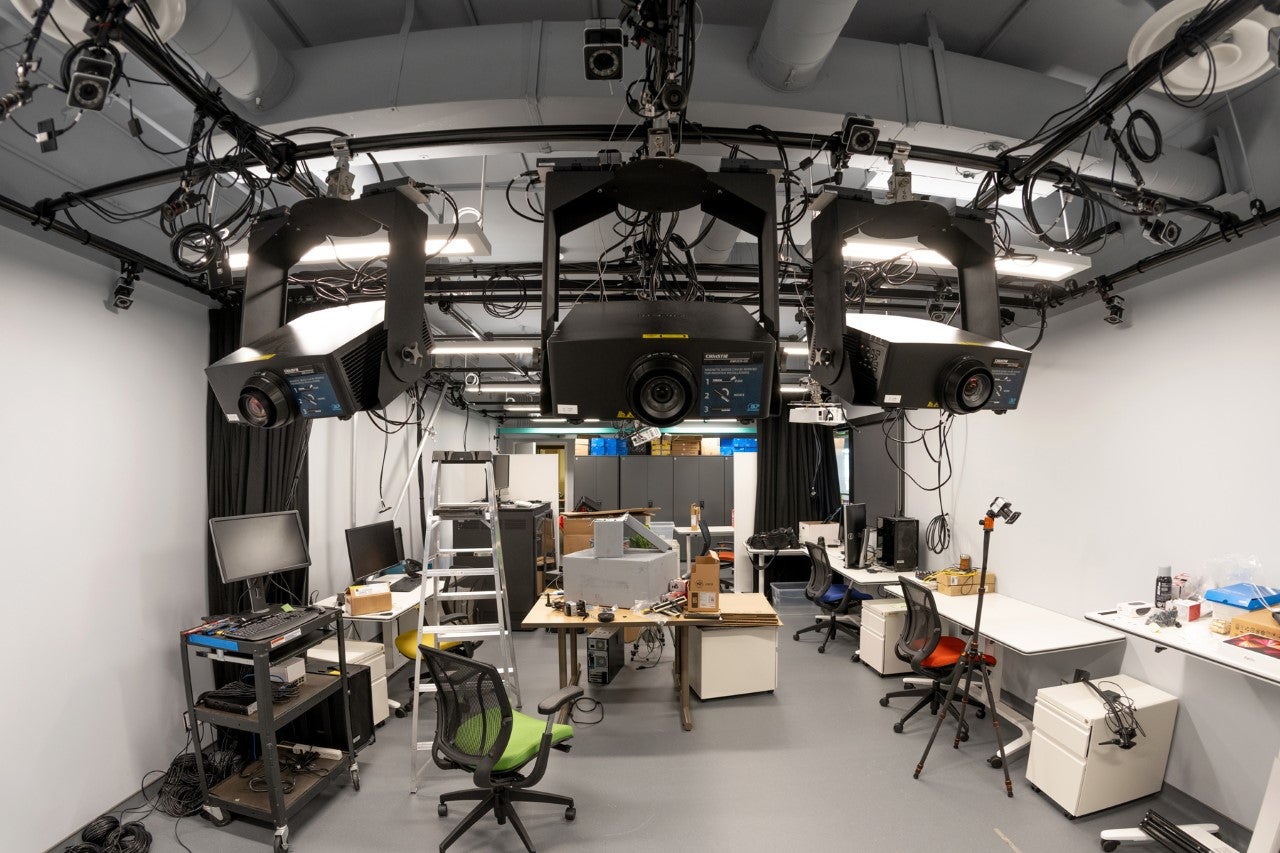L to R: Daniel Vogel and Jian Zhao.
Daniel Vogel, an associate professor and Cheriton Faculty Fellow in the School of Computer Science, and Jian Zhao, an assistant professor in the Cheriton School of Computer Science, were named among a select group of researchers in a recent funding announcement from Reality Labs Research.
Reality Labs Research is part of the broader Meta Research organization, which is under the umbrella of the recently rebranded Facebook company, now known as Meta.
Vogel, Zhao and several colleagues and graduate students have been developing research and technology that plays a part in building the metaverse through the Human Computer Interaction Lab.
Meta is involved in a push to rapidly advance metaverse-related research and technology, and today announced not only the research funding but also its intention to create up to 2,500 new tech jobs in Canada in the coming years.
The company says the goal of the funding and job creation is to create the next generation of “immersive online social experiences.”
A statement on the funding announcement by Daniel Wigdor, director of research science at Reality Labs Research, notes that “the metaverse is the next evolution in social technologies and the successor to the mobile internet.”
“It will be made up of digital spaces, including immersive 3D experiences, that are all interconnected so you can easily move between them, and has the potential to unlock access to new creative, social and economic opportunities. In the future, you’ll be able to access the metaverse from various devices, including VR headsets and AR glasses.”

The Human Computer Interaction Lab in the Cheriton School of Computer Science. Vogel, along with colleagues and graduate students, has made a series of breakthroughs and novel technologies in recent years, winning acclaim and precipitating the unrestricted grant from Meta's Reality Labs Research.
Vogel’s research focuses on fundamental characteristics of human input and novel forms of interaction for current and future computing form factors like touch, tangibles, mid-air gestures and whole-body input, for everything from on-body wearable devices and mobile phones, to large displays and virtual reality.
In an interview discussing the development of technology in human computer interaction and the work of the HCI Lab, Vogel said, “we’re always setting out to make things people can easily use. People look at ... new tech in the field of human-computer interaction, and they say it just makes sense. That’s what we want. We want to make technology that’s intuitive and straightforward, but sometimes to do that takes a lot of complex research and sophisticated software.”
Zhao’s research focuses on information visualization, human-computer interaction and data science. He develops advanced interaction and visualization techniques that promote the interplay between humans, machines and data. His research aims to boost the efficiency of real-world data analytical activities that involve a large amount of data, various complicated models and a diverse group of analysts.
“This generous support from Reality Labs Research will help us develop new technologies to enhance communication in the metaverse — between people, users and data through the virtual world, blended with the real world,” said Zhao. “Specifically, it will advance our study on the interactions between virtual reality live streamers and their audience, and promote the innovations for supporting various streaming strategies, communicating emotions beyond text and visualizing streaming behaviours.”
Some of the recent projects that have come out of the HCI Lab include:
- Smart displays that show information through fabric
- Typealike near-keyboard interaction
- Metaverse streaming services
Read the full media release from Reality Labs Research for more background on the new funding.